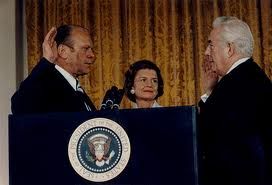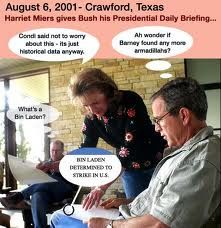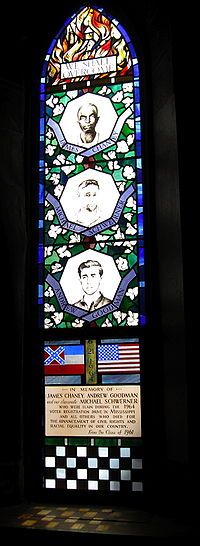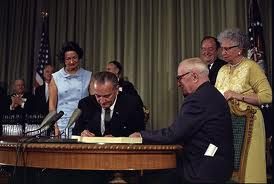Cross posted from The Stars Hollow Gazette
This is your morning Open Thread. Pour your favorite beverage and review the past and comment on the future.
Find the past “On This Day in History” here.
Click on images to enlarge
August 10 is the 222nd day of the year (223rd in leap years) in the Gregorian calendar. There are 143 days remaining until the end of the year.
The term ‘the 10th of August’ is widely used by historians as a shorthand for the Storming of the Tuileries Palace on the 10th of August, 1792, the effective end of the French monarchy until it is restored in 1814.
On this day in 1846, Smithsonian Institution was created. After a decade of debate about how best to spend a bequest left to America from an obscure English scientist, President James K. Polk signs the Smithsonian Institution Act into law.
In 1829, James Smithson died in Italy, leaving behind a will with a peculiar footnote. In the event that his only nephew died without any heirs, Smithson decreed that the whole of his estate would go to “the United States of America, to found at Washington, under the name of the Smithsonian Institution, an Establishment for the increase and diffusion of knowledge.” Smithson’s curious bequest to a country that he had never visited aroused significant attention on both sides of the Atlantic.
After the nephew died without heirs in 1835, President Andrew Jackson informed Congress of the bequest, which amounted to 104,960 gold sovereigns, or US$500,000 ($10,100,997 in 2008 U.S. dollars after inflation). The money, however, was invested in shaky state bonds that quickly defaulted. After heated debate in Congress, former President John Quincy Adams successfully argued to restore the lost funds with interest. Congress also debated whether the federal government had the authority to accept the gift. Congress ultimately accepted the legacy bequeathed to the nation and pledged the faith of the United States to the charitable trust July 1, 1836.
Eight years later, Congress passed an act establishing the Smithsonian Institution, a hybrid public/private partnership, and the act was signed into law on August 10, 1846 by James Polk. (See 20 U.S.C. § 41 (Ch. 178, Sec. 1, 9 Stat. 102).) The bill was drafted by Indiana Democratic Congressman Robert Dale Owen, a Socialist and son of Robert Owen, the father of the cooperative movement.


 Heyerdahl and his five-person crew set sail from Callao, Peru, on the 40-square-foot Kon-Tiki on April 28, 1947. The Kon-Tiki, named for a mythical white chieftain, was made of indigenous materials and designed to resemble rafts of early South American Indians. While crossing the Pacific, the sailors encountered storms, sharks and whales, before finally washing ashore at Raroia. Heyerdahl, born in Larvik, Norway, on October 6, 1914, believed that Polynesia’s earliest inhabitants had come from South America, a theory that conflicted with popular scholarly opinion that the original settlers arrived from Asia. Even after his successful voyage, anthropologists and historians continued to discredit Heyerdahl’s belief. However, his journey captivated the public and he wrote a book about the experience that became an international bestseller and was translated into 65 languages. Heyerdahl also produced a documentary about the trip that won an Academy Award in 1951.
Heyerdahl and his five-person crew set sail from Callao, Peru, on the 40-square-foot Kon-Tiki on April 28, 1947. The Kon-Tiki, named for a mythical white chieftain, was made of indigenous materials and designed to resemble rafts of early South American Indians. While crossing the Pacific, the sailors encountered storms, sharks and whales, before finally washing ashore at Raroia. Heyerdahl, born in Larvik, Norway, on October 6, 1914, believed that Polynesia’s earliest inhabitants had come from South America, a theory that conflicted with popular scholarly opinion that the original settlers arrived from Asia. Even after his successful voyage, anthropologists and historians continued to discredit Heyerdahl’s belief. However, his journey captivated the public and he wrote a book about the experience that became an international bestseller and was translated into 65 languages. Heyerdahl also produced a documentary about the trip that won an Academy Award in 1951.
 Television, rock and roll and teenagers. In the late 1950s, when television and rock and roll were new and when the biggest generation in American history was just about to enter its teens, it took a bit of originality to see the potential power in this now-obvious combination. The man who saw that potential more clearly than any other was a 26-year-old native of upstate New York named
Television, rock and roll and teenagers. In the late 1950s, when television and rock and roll were new and when the biggest generation in American history was just about to enter its teens, it took a bit of originality to see the potential power in this now-obvious combination. The man who saw that potential more clearly than any other was a 26-year-old native of upstate New York named 
 The USS Nautilus was constructed under the direction of U.S. Navy Captain Hyman G. Rickover, a brilliant Russian-born engineer who joined the U.S. atomic program in 1946. In 1947, he was put in charge of the navy’s nuclear-propulsion program and began work on an atomic submarine. Regarded as a fanatic by his detractors, Rickover succeeded in developing and delivering the world’s first nuclear submarine years ahead of schedule. In 1952, the Nautilus’ keel was laid by President Harry S. Truman, and on January 21, 1954, first lady Mamie Eisenhower broke a bottle of champagne across its bow as it was launched into the Thames River at Groton, Connecticut. Commissioned on September 30, 1954, it first ran under nuclear power on the morning of January 17, 1955.
The USS Nautilus was constructed under the direction of U.S. Navy Captain Hyman G. Rickover, a brilliant Russian-born engineer who joined the U.S. atomic program in 1946. In 1947, he was put in charge of the navy’s nuclear-propulsion program and began work on an atomic submarine. Regarded as a fanatic by his detractors, Rickover succeeded in developing and delivering the world’s first nuclear submarine years ahead of schedule. In 1952, the Nautilus’ keel was laid by President Harry S. Truman, and on January 21, 1954, first lady Mamie Eisenhower broke a bottle of champagne across its bow as it was launched into the Thames River at Groton, Connecticut. Commissioned on September 30, 1954, it first ran under nuclear power on the morning of January 17, 1955. Fifty-six congressional delegates in total signed the document, including some who were not present at the vote approving the declaration. The delegates signed by state from North to South, beginning with Josiah Bartlett of New Hampshire and ending with George Walton of Georgia. John Dickinson of Pennsylvania and James Duane, Robert Livingston and John Jay of New York refused to sign. Carter Braxton of Virginia; Robert Morris of Pennsylvania; George Reed of Delaware; and Edward Rutledge of South Carolina opposed the document but signed in order to give the impression of a unanimous Congress. Five delegates were absent: Generals George Washington, John Sullivan, James Clinton and Christopher Gadsden and Virginia Governor Patrick Henry.
Fifty-six congressional delegates in total signed the document, including some who were not present at the vote approving the declaration. The delegates signed by state from North to South, beginning with Josiah Bartlett of New Hampshire and ending with George Walton of Georgia. John Dickinson of Pennsylvania and James Duane, Robert Livingston and John Jay of New York refused to sign. Carter Braxton of Virginia; Robert Morris of Pennsylvania; George Reed of Delaware; and Edward Rutledge of South Carolina opposed the document but signed in order to give the impression of a unanimous Congress. Five delegates were absent: Generals George Washington, John Sullivan, James Clinton and Christopher Gadsden and Virginia Governor Patrick Henry.